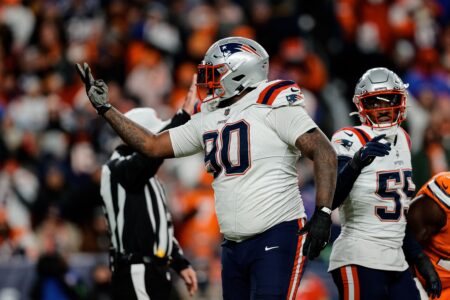maineman209
Veteran Starter w/Big Long Term Deal
- Joined
- Mar 8, 2017
- Messages
- 9,642
- Reaction score
- 20,258
And in the same time
Blount = 464 carries, 30.9 carries per receiving target
Gillislee = 148 carries, 8.2 carries per receiving target
So Gillislee is more than 3x as likely to be targeted in the passing game per carry than Blount.
And you are forgetting Burkhead as well.
87 career rushes, 45 receiving targets. 1.93 carries per target. Over 15x as likely to be targeted per carry as blount.
Good point. It's also been a distinctly different offensive system in BUF during Gillislee's tenure - run first (55% running plays), with a far lower net yards per pass attempt than the Pats. So, the question is, how many of Gillislee's tgts were by design and how many were simply dump-offs? Brady rarely does dump-offs to the RB.
I didn't forget about Burkhead, I just think his comp may be more White or Lewis than Blount or Gillislee. Prior to 2016, Burkhead was used primarily as a receiver (25 tgts - 13 carries). Almost 80% of his career carries came in the last 6 games of 2016, 31% of his career carries came in the Bengals' last game of 2016 (a win over the Ratbirds) with 13.5 carries per target.
If McD wants to run a few of Chip Kelly's 2-RB backfield plays, I suspect that Burkhead might be used in combination with White or Lewis more often than Gillislee.

















